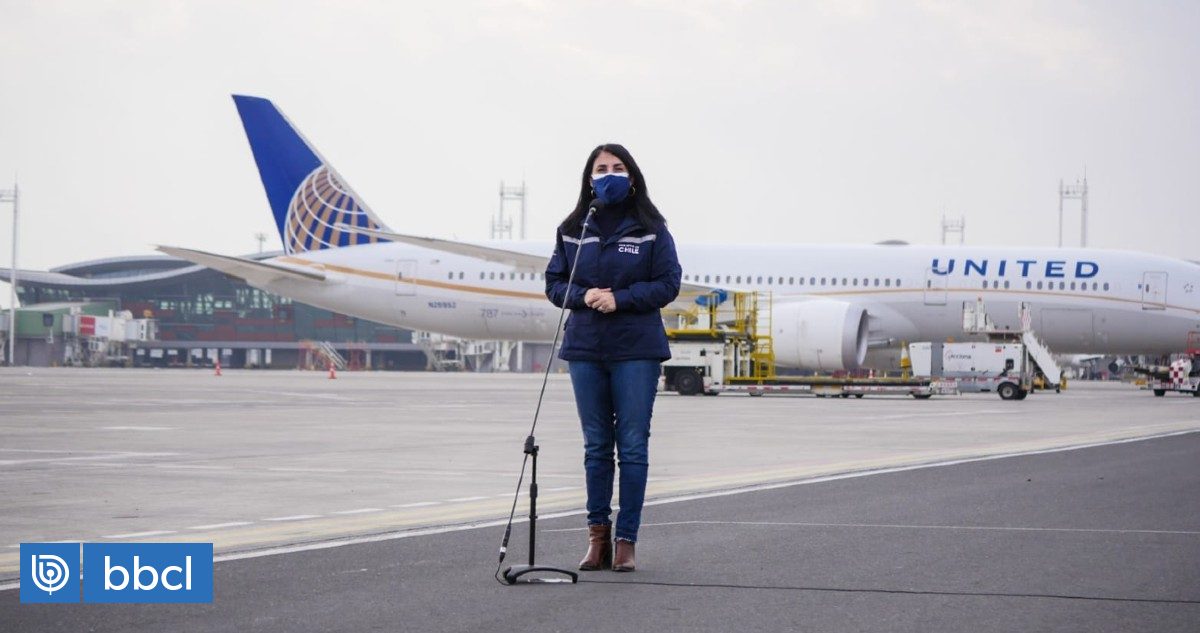to a woman at a Huntington car vaccination center.
Sholten Singer/AP
–
–
(Some links in English)
In English | Who can get vaccinated now?
- People 12 years of age or older. The state will continue to give priority to the population 65 years and older until all people in that group who want to get vaccinated can do so. If you are 65 or older and still waiting for an appointment, call the State Vaccine Information Line, 833-734-0965.
Read the latest news about vaccines at aarp.org/Vacunas
Where can I get vaccinated?
- Local government-run health departments, community centers, churches, and mass vaccination sites they are offering vaccines in all 55 counties. The locations, schedules and information on the inscription are updated weekly; visit the state vaccine page and click on “Vaccine Clinic Information” to view the current schedule. Schedule an appointment through pre-registration system of the state. The COVID-19 data system West Virginia is tracking how many people have been vaccinated in the state.
- Pharmacy: Vaccines are being administered in certain stores Fruth, Walgreens, Walmart Y CVSSome of them are offering walk-in vaccinations. Follow the links to book an appointment or search the federal government tool page www.vaccines.gov. You can use the same tool by texting your zip code to 438829 to find vaccination sites or by calling 800-232-0233 (TTY: 888-720-7489 for the hearing impaired.)
- Several transit agencies offer free or discounted rides to and from vaccination sites.
AARP recommends that you consult with your doctor about the safety, efficacy, benefits, and risks of the COVID-19 vaccine. Older adults, especially those with underlying conditions such as heart disease and diabetes, have a increased risk of being hospitalized and dying because of COVID-19.
What should I bring to the vaccination appointment?
Some vaccination centers ask for some proof of identity or proof that you meet the vaccination criteria. Authorities recommend that you carry your driver’s license or other state-issued identification that shows your name, age, and the state where you live. In addition, it is recommended to bring your medical insurance card, if you have it. You will not have to pay anything, but the vaccine provider may charge the insurer some amount for the administration of the vaccine. The Centers for Disease Control and Prevention (CDC) recommends wearing a mask when you go to your appointment.
How do residents of nursing homes and other long-term care facilities get the vaccine?
West Virginia did not participate in the federal program to administer COVID-19 vaccines to long-term care facility residents and staff through a collaboration with CVS and Walgreens. Instead, the state worked with a wide variety of pharmacies to operate vaccination clinics in nursing homes and assisted living communities. West Virginia completed the clinics at its 214 long-term care facilities at the end of January.
Which vaccines require a second dose?
Vaccines against COVID-19, one from Pfizer and one from Moderna, require two doses. If you receive one of these vaccines, you will need to receive a follow-up dose to gain the necessary immunity. It is recommended that the second dose be given three weeks after the first for the Pfizer vaccine, and four weeks for the Moderna vaccine. However, the Centers for Disease Control and Prevention say they can be given up to six weeks later. You should receive a card from your provider stating the place and date to return for the second dose. The state says it will send reminders via text message, email and phone call.
The Johnson & Johnson vaccine requires only one injection. The US Food and Drug Administration. (FDA) warns that the vaccine has been linked to rare and serious blood clots in a small number of vaccinated people, especially women age 50 and younger, and an increased risk of developing Guillain-Barré syndrome, a neurological disorder. rare. The length of the immunity period of a coronavirus vaccine or whether it should be given regularly is not yet known. Some experts have said that a booster may be needed in the future; however, a vaccination plan for additional doses has not been established.
Do I have to pay for the vaccination?
You shouldn’t have any out-of-pocket costs to get the vaccine. AARP fought to ensure that the federal government cover the cost of the vaccine. Providers can recover a fee for administering the injection, but cannot charge consumers. They would be reimbursed by the patient’s insurance company or the government (in the case of Medicare and Medicaid beneficiaries and the uninsured, for example).
Scammers are offering COVID vaccines and treatments and trying to charge for them. AARP’s Anti-Fraud Network, is tracking the latest scams.
What should I do with my vaccination card?
During your vaccination appointment, you should receive a small white card that includes your name, date of birth, the name of the vaccine you received, and the date it was administered. If you receive the Pfizer or Moderna vaccine, take your card with you when you go for your second dose.
You may need your vaccination card for certain types of trips or other activities, so keep it in a safe place. You can take a photo of it with your smartphone for your own records. Experts say that posting a photo of your card on social media could make yourself vulnerable to identity theft. If you lose your card or if you did not receive one, contact your vaccine provider or your local Health Department to receive a copy.
When can children be vaccinated?
The Pfizer vaccine is licensed for individuals 12 years of age and older, while the Moderna and Johnson & Johnson vaccines are licensed for individuals 18 years of age and older. Both companies, Pfizer and Moderna, are investigating the effectiveness of their vaccines in children from 6 months of age.
Should I wear a mask after getting vaccinated?
Immunity is acquired two weeks after receiving the single-dose vaccine or, in the case of two-dose vaccines, after the second dose.
Because the delta variant continues to circulate, the CDC recommend fully vaccinated people wearing a mask in closed public spaces in areas where COVID-19 is spreading rapidly, including in schools.
The CDC recommends continuing to wear masks on airplanes, buses, and trains as well as on any other public transportation whether you are traveling to, within, or outside of the United States.
This guide was originally published on December 24. It was updated on July 28 with new CDC recommendations on mask use for vaccinated people.

–
–
You may also like:
– .


